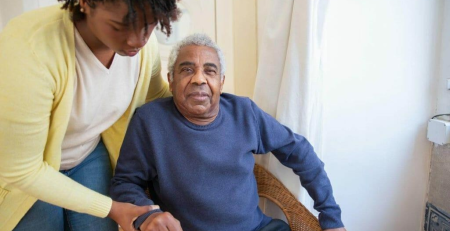Why Empathy is Very Important in Caregiving

As human beings, we all long for a sense of belonging and caring. This is especially true when we are sick, elderly, or disabled. Caregivers are trained professionals who provide medical and emotional support to individuals who are unable to perform daily activities on their own. To provide effective care, empathy is an essential ingredient.
Overall, empathy in care is an essential component of high-quality healthcare. It helps caregivers provide care that is not only skilled and competent but also compassionate and understanding. By putting themselves in the patient’s shoes and providing care that is patient-centered and empathetic, caregivers can help their patients achieve better health and wellness and improve their overall quality of life
SO WHAT IS EMPATHY

Empathy is the ability to put oneself in someone else’s shoes and understand their emotions, thoughts, and feelings. It is the ability to connect with others in a meaningful and authentic way. A caregiver who exhibits empathy can help patients feel listened to, understood, and cared for.
Compassionate care provides a sense of security and trust to patients, and this can improve their healing process significantly. However, empathy goes beyond just listening and understanding. It also involves taking action and offering help, regardless of the attitude or behavior of the patient. As a caregiver, it is important to be patient, present, and attentive, especially in situations where patients may be confused, distressed or in pain

Empathy also enhances the communication process between caregivers and patients. Good communication is critical when providing care. By putting oneself in the position of the patient and understanding their situation, caregivers can communicate effectively, offer appropriate solutions and, where necessary, provide emotional support.
Empathy in caregiving also benefits the caregiver. It helps them to build better relationships with their patients, which can make their work more fulfilling. In addition, when caregivers are empathetic, they feel a sense of emotional satisfaction and joy that comes from helping others. This sense of satisfaction helps prevent burnout, which is common in the caregiving profession.

In conclusion, caregiving is a noble profession that requires a high level of empathy. It is not just about listening; it is about taking action, offering help and support, and showing compassion. With empathy, caregivers can make a difference in the lives of those they care for, and create an environment of healing and hope. There is no doubt that empathy is an essential ingredient to effective caregiving, so let us all work towards showing more compassion in our daily lives.
EMPATHY IN CARE
At Prompt Home Health, we believe strongly in Empathy in Care – that by putting ourselves in our clients’ shoes and providing care that is tailored to their unique needs and preferences, we can help our clients achieve their health and wellness goals and live their best lives at home.










